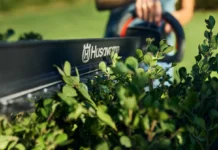CAMFED Association is running a project across Africa where hard working females are uplifting rural communities through agriculture and adopting climate-smart initiatives.
CAMFED is a pan-African movement revolutionising how girls’ education is delivered.
According to CAMFED the climate crisis has dug its claws deep into Africa’s food security, but there is hope in the form of intelligent, dedicated women who have adopted climate-smart agriculture.
“Adapting to the unpredictable weather patterns to help protect and boost agriculture on the continent is not just a solution — it’s necessary for the future of farming and being able to alleviate hunger across the continent,” CAMFED said.
“CAMFED Association recognises this, while also recognising that empowering a girl through education means empowering an entire community, and even a continent. That’s why it helps put girls through school, and exposes them to opportunities in the agriculture space so that they can help uplift their communities through sustainable agriculture practices and education.”
It added: “These women are formidable forces whose work will not only protect the rural communities they support today, but also continue to boost food security for future generations.
Here are a few women in the sustainable agriculture space that you need to know about.”
Some of the women who have been identified by CAMFED are Martha Fanny Gaisie from Ghana.
Gaisie is the founder and chief executive of Healthy Choice Agro Consult.
She founded the business after witnessing the impact of the climate crisis on her community, an impact that even extends to access to education for children in the area — an issue dear to her.
“Over recent years the weather has become more unpredictable. The wells dry up after extended drought. We also have bushfires that can burn someone’s whole farm,” she said.
“In recent years, already germinated crops died due to insufficient rains or excessive heat and sunshine. That meant that parents were unable to provide for items for their children that they needed for their schools, as farming is their sole source of income and livelihood.”
With the help of CAMFED and the Mastercard Foundation, she started her business in 2019, an oyster mushroom agriculture business.
“Mushrooms are a climate-smart crop because there is no need to cut down trees or burn crops. They grow in an enclosed area,” she said.
“We use waste sawdust from nearby wood mills as compost, and after we have harvested the mushrooms the saturate becomes an organic fertiliser which I sell to farms in the community.”
Her business has been thriving, meaning she’s also been able to pay it forward. She’s been empowering her employees through skills development, and even committing to a social project, contributing 5% of business profits to the Empowered Youth Foundation — her very own foundation dedicated to empowering young women in rural communities.
Cindy Ateng also from Ghana is a medical student and business owner, the chief executive of Fresh Veg Agri-Business in Ghana.
“I’m proud to be solving a problem for my community, by helping to ensure fresh, local produce is available year-round,” she said.
“The business is also linked to my interest in promoting good health and supporting the Sustainable Development Goals, specifically Zero Hunger.”
Ateng added: “In the next five years I hope to scale up through having additional greenhouses and producing other vegetables like cucumbers, cabbages, and carrots.
“I also plan to open a showroom or grocery store and to process my crops — increasing their shelf life, and making them more accessible and affordable to the people of my community.”
She’s also working towards being able to empower the women in her community, to help them on their entrepreneurial journeys as she continues to grow in hers.
Another Ghanian beneficiary is Olivia Kipo, a biodiversity graduate who is the founder of Kobaa Farms, an organic vegetable farm that uses sustainable methods of farming to provide her community with fresh food.
“I started an organic vegetable farm in 2018 in response to several challenges I had noticed in my community,” she said.
“Many of the farms in northern Ghana do not harvest produce outside the rainy season; this means that vegetables become more expensive as they have to be transported from the south. It also means that there are fewer job opportunities. People often migrate looking for work and once in urban centres — the girls and young women in particular — are vulnerable to exploitation.”
Her farm is located near a dam, allowing them to dig a well to irrigate the crops, so that they are able to operate throughout the year without having to depend on the rain seasons.
Kipo continued: “We also use tanks to harvest rainwater. I do not want to rely on conventional fuel-powered irrigation and am instead working towards installing a solar irrigation system.”
She supplies three hotels, four restaurants, and several households with vegetables.
“I won the business from the hotels and restaurants simply by going there and introducing myself and my produce. They were so excited to meet a female graduate who is leading in agriculture,” she said.
Miriam Nyati is from Malawi and is a business-savvy sustainable agriculture expert.
Through the Malawian government, personal savings, and support from CAMFED, she is an agricultural extension development officer.
“I pass on my knowledge about proper spacing, planting, fertiliser application, watering, weeding,” she said.
“Climate-smart methods play an important role in these improvements, leading to greater production and increased food security, whilst conserving the environment.”








